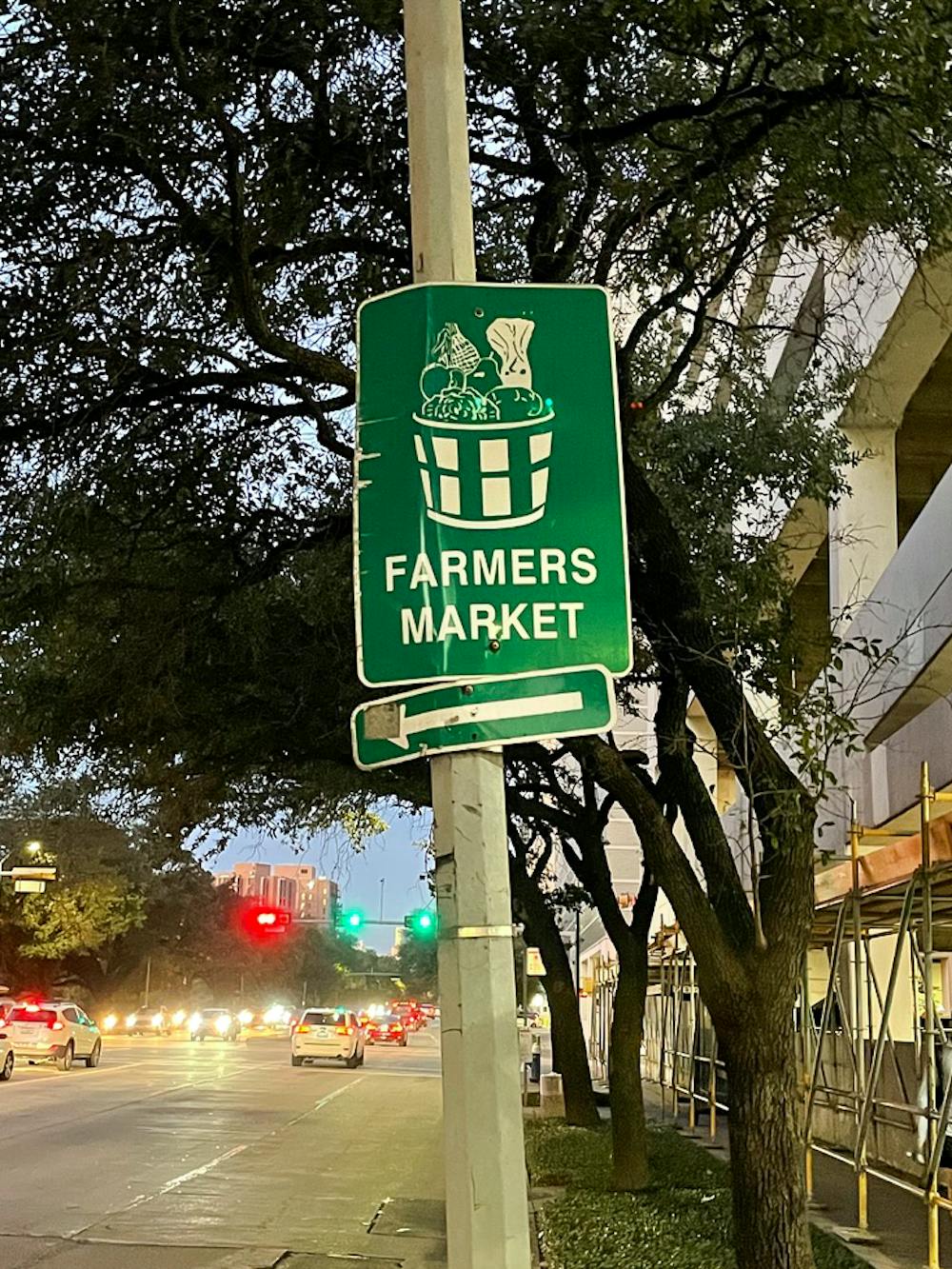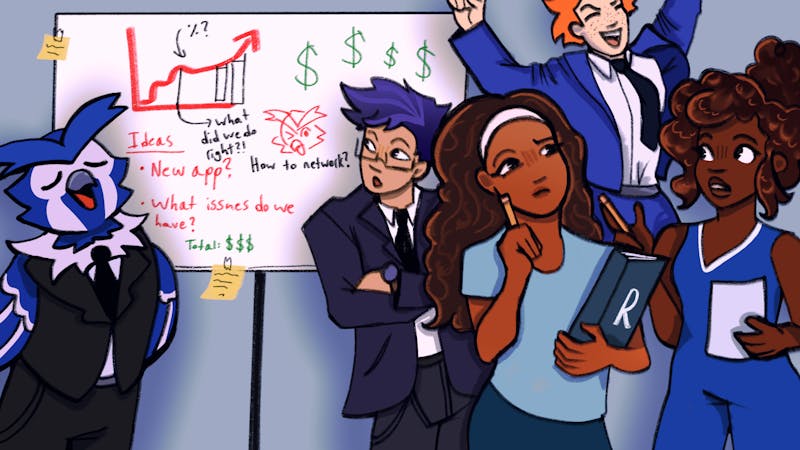‘Know your farmer, know your food’: Rice’s farmers market pivots in COVID-19 era

Lighthearted chatter used to drift from booths filled with lush, leafy greens and fresh baked bread offered by local vendors at the Rice University Farmers Market. But what was once a mainstay on campus faced a screeching halt when COVID-19 cases started to appear in Houston. Now, the only visible remnant of the market is a street sign pointing out where the market once was.
But despite losing their locale, the farmers market and its vendors have moved to other markets and thought of innovative ways to sell their products to the community safely.
Ileya Grosman, the Rice farmers market manager, was preparing to travel away from campus over spring break when news broke about COVID-19 cases in Houston. The previous day, she had been making arrangements for someone to lead the market in her absence; the next day, she updated the website, saying that the market would be “closed until we know what we’re doing.”
“There was no feeling, it was just acting in that moment,” Grosman said. “I was checking in with the vendors, particularly the farmers, because to me the farmers are the priority. That’s how the farmers market was really born, to support local culture in a sustainable fashion.”
For Stacey Roussel, owner of All We Need Farm — a vendor known for their goat milk popsicles — the market shutting down was “expected but unexpected.”
“I had in the back of my mind that [Rice] University wasn’t gonna allow folks to come on campus with the virus,” Roussel said. “But I was counting on that revenue. My planning for next year took into consideration sales that were made at the market.”
At this point, Grosman said that she was checking in with farmers on a daily basis to make sure that they had new avenues to sell their products. Even though the rest of the city was shutting down, crops were still growing, milk was still being produced and farmers still had to find places to sell their products.
“The first thing I did was work with other farmers markets,” Grosman said. “There was a fear that the markets were going to close, because everything was closing. Then, I had brief conversations with Rice [Housing &] Dining to see if they could buy the excess produce. They were like, ‘Yes, we’ll take it,’ but it didn’t take long for all the farmers to say we don’t have anything. Everything had been bought up [by other customers.]”
Grosman said that as someone who lives near Rice campus, she had a good grasp on the role the farmers market held in the lives of community members. She sought to connect the farmers and the people who wanted to buy from them without the venue of the farmers market to bring them together.
“We created a drop-off location at my house, and from there I immediately reached out to people I knew in the neighborhood who would have an interest in being a part of this,” Grosman said. “This meant they would receive a weekly email to buy local vegetables. We called it a food share, and you would get a bag of food. They could order cheese, yogurt, goat milk and honey.”
With these neighborhood sales, Grosman said that farmers were able to get a source of revenue that was consistent. She said that although the farmers market was not a large source of revenue for farmers, it was good for a mid-week market and was something that farmers could count on.
However, Grosman said she didn’t think the neighborhood sales would ultimately bring in enough revenue for vendors.
“I didn’t think that was enough for them,” Grosman said. “I called someone on the board of Evelyn’s Park [in Bellaire] and asked them to essentially replicate the same thing. A little further from there, I called someone who could [set up a drop off location at their house]. In the course of a four-month period, $35,000 was raised just by small groups of neighborhoods consistently buying the food.”
All three locations are still operating, according to Grosman. After establishing the neighborhood sale systems, Grosman learned that Verdegreens, a hydroponics farm, had partnered with four or five other sustainable farms to create boxes of food to be sold.
“We stayed in very close contact, because I had a feeling I could take this idea back to Rice,” Grosman said. “It’s time to pivot the market. It’s been time for a while to move away from a 13-year-old program and bring it back into campus, not outside of campus.”
Now, students can purchase Verdegreens boxes online for $45 and pick them up at Rice’s Cohen House, which Grosman encouraged students to do if they want to support local farmers, She also stressed the importance of following COVID-19 safety measures to support and protect the community as a whole.
In order to support local farmers, Grosman also suggested frequenting other farmers markets in Houston, while remaining socially distanced from other visitors.
“Go when people aren’t there. Go really early, or, when you are there, circumvent how you walk [to distance from others],” Grosman said. “When we interact with our local farmers or our local food purveyors, people who are making food, we’re not only putting money back into the economy that we live in, we’re creating connections with people who we might not have ever interacted with.”
Grosman said that students should look for ways to support local, sustainable practices in Houston whenever they have the chance.
“Support restaurants like Little Kitchen HTX which is on our campus. They have been pushing local for two decades in some fashion or another,” Grosman said. “Think, where does our food come from? Know your farmer, know your food. If you don’t know your farmer, know where you can get local food.”
More from The Rice Thresher


Sree’s Tiffin feeds a community of cravings
Of all the common sicknesses Rice undergraduate students face, none is more widespread than homesickness. Trisha Rangi said she understands what it’s like to miss things that feel like home, and she decided to do something about it.

New student center to ‘complete’ central quad
Breezeways, arches and outdoor seating will abound at the Moody Center Complex for Student Life set to break ground May 8. The 75,000-square-foot complex was designed by architecture firm Olson Kundig and has an expected completion date of fall 2027.

Please note All comments are eligible for publication by The Rice Thresher.